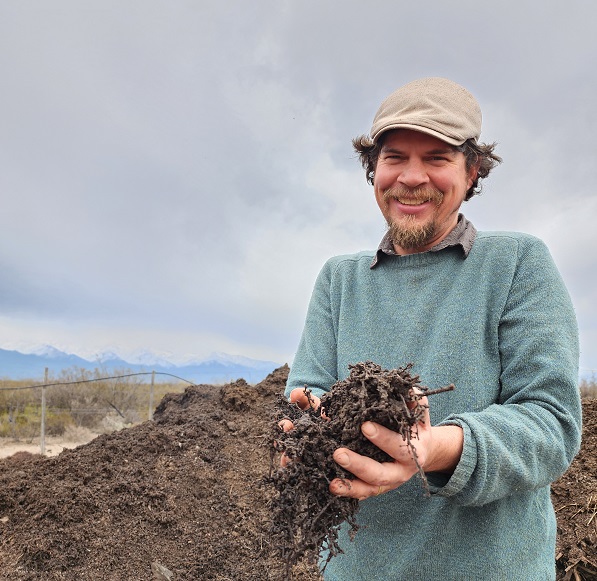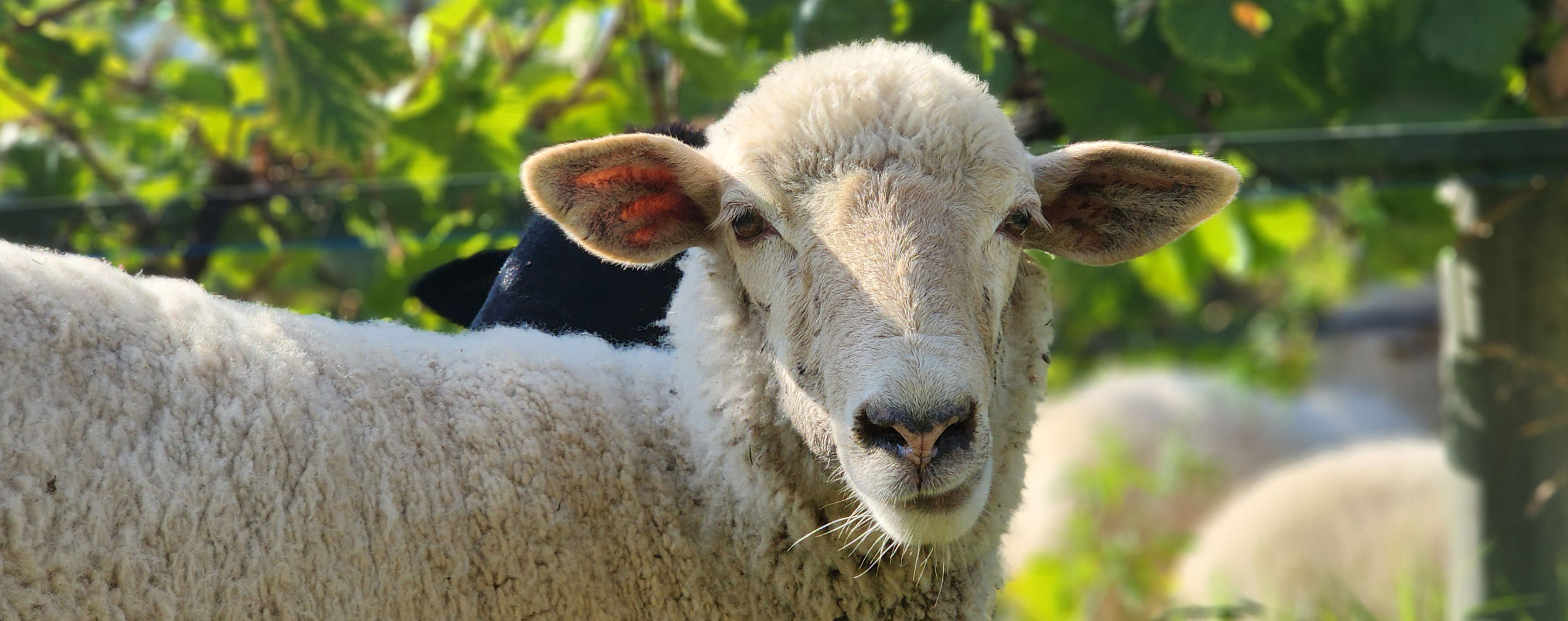Follador (below) is a renowned international biodynamic and farm-scale compost expert and has worked in more than 12 countries. In 2015 he was named as one of the 20 leading innovators protecting the planet by the organisation Food Tank, USA.

Follador and the rest of the team at Domaine Bousquet, in Gualtallary, are working to enhance organic matter, better conserve the soil and increase the beneficial interactions between plants and micro-organisms at the 672-acre estate.
Effective composting also aligns with the business’s ambition of becoming carbon neutral this year. Reducing soil disturbance (the estate has not practised tillage for more than a year), as well as encouraging cover crops and the natural flora are key to increasing nutrients, porosity and adding to carbon sequestration, Domaine Bousquet states.
Irma Remigio, the estate’s environment and biodynamic management coordinator, explained the importance of composting to Canopy: “Compost is really a form of recycling; taking matter from the soil and returning it in a better condition, so that the soil’s micro and macro flora can develop in terms of nutrients, but also in terms of soil structure. Composting generates healthy plant development, resistance to diseases and reduces fungicides. When French scientist Antoine Lavoisier said, ‘Nothing is lost, everything is transformed’, he couldn’t have been more right, and we take it seriously at Domaine Bousquet. Composting is a vital component in the natural circle of the soils and carbon life.”
But it’s not a quick fix. Irma continued: “Composting takes time; the material we will use this season is still maturing, so there is an element of watching and waiting to what we are doing right now. But for the next few years we plan to study the evolution of the quality of each of our soils and the plants, even though we already know it is the best path for the estate.”
The studying involves controlling the temperature, humidity, pH and conductivity of the compost’s evolution. “There are phases we can expect in the timeline of compost,” Irma revealed. “Parameters such as temperature and humidity are registered in a curve graphic, then we can decide the perfect time to water it or even mix it up to reactivate via aeration. The curve also indicates when the compost is already mature so we can send it for a more complete analysis before deciding how and when we are going to use it.”
Good compost gives not only nutrients and physical structure, erosion mitigation and better soil porosity, but also allows micro development and diversification of the land. This diversification leads to yeast balance too, which directly affects the final wine; balance of yeast on the grapes means more stable spontaneous fermentations and fewer interventions.
As a result, the team is now as focused on the compost’s evolution as it is on the fermentation of its musts.
Working on such a large scale has its challenges, Irma admitted. “With a large estate, planning is particularly important as is control of both the quality and quantity of materials, proportions, and humidity. As well as the machinery required,” she said.
Domaine Bousquet has already invested in a small flock of ten sheep to help them. They were brought into the vineyard at the end of last year to boost its closed cycle of nutrients. The sheep, as well as cows, horses, chickens, ducks and local fauna, provide an excellent source of composting material.
Apart from the ten sheep, the other animals are owned by local farmers. “We choose local farmers and support them financially, as part of our commitment to local economy sustainability,” Irma said. “Feedlot farming is not permitted in biodynamic agriculture; it is not healthy for the animals nor the environment as it increases carbon footprint. One of the biodynamics ideals is to construct a solid and sustainable community and composting is part of this.”
Domaine Bousquet, owned and run by husband-and-wife team Labid al Ameri and Anne Bousquet, was certified B Corp at the end of 2022 and became the fourth wine estate (the first outside the US) to be awarded Regenerative Organic Certified status last year. It’s a remarkable achievement for a wine business that only purchased its first parcel of land in Tupungato, Mendoza, in 1997.











.png)









